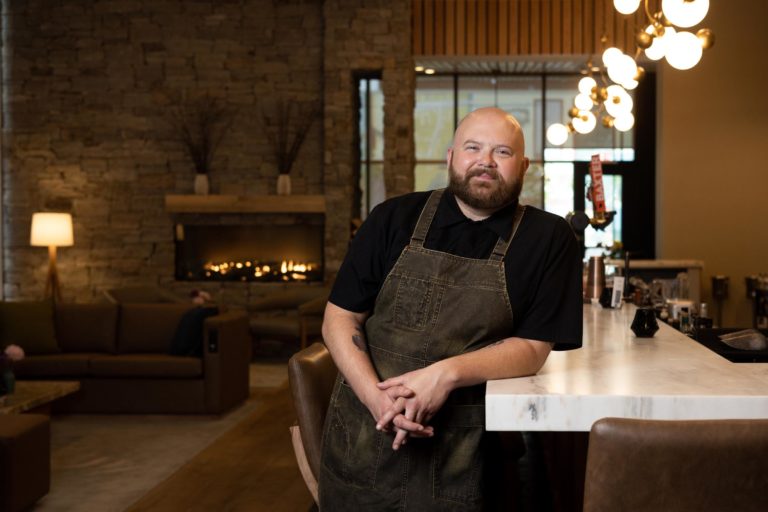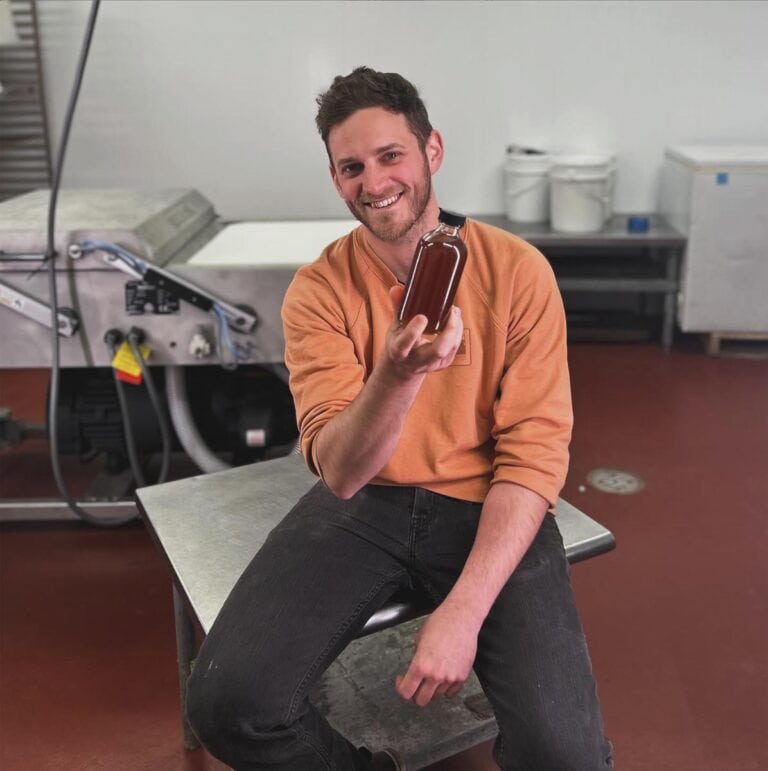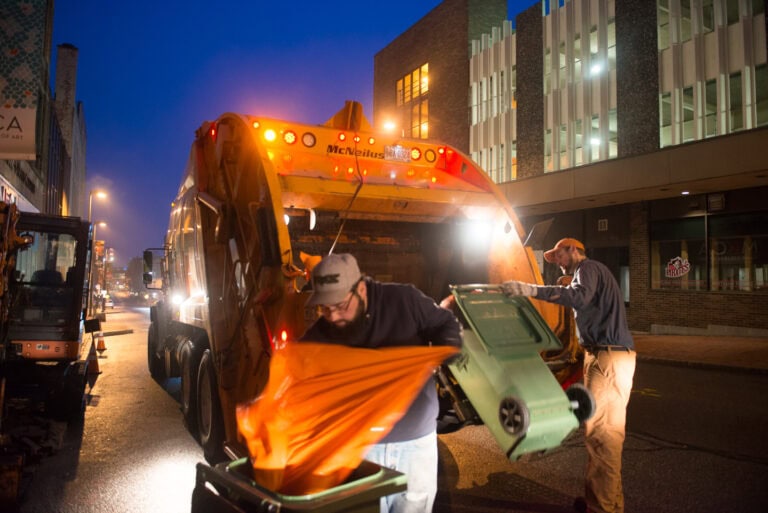Chicken stock simmers on the stove, steams the windows, and casts its heady aroma into every corner of the small house. A pot of coconut rice perches on the stovetop, awaiting spoonfuls of juicy braised pork shoulder.
Melissa Law vividly remembers the first meal that Muriel Webster cooked for her family at their home on Bumbleroot Farm in Windham. Law’s daughter was 1 week old, and she had invited Webster into their home as a postpartum doula. With the ease of a seasoned culinary professional and the reassuring presence of a mother, Webster gently took command of the house and tended to Law and her family.
“Muriel came into my home and sat with me. She asked me how I was doing and how I was feeling. She cooked the most amazing food that I’ve ever had,” Law says. “It was a really nourishing experience in every way.”
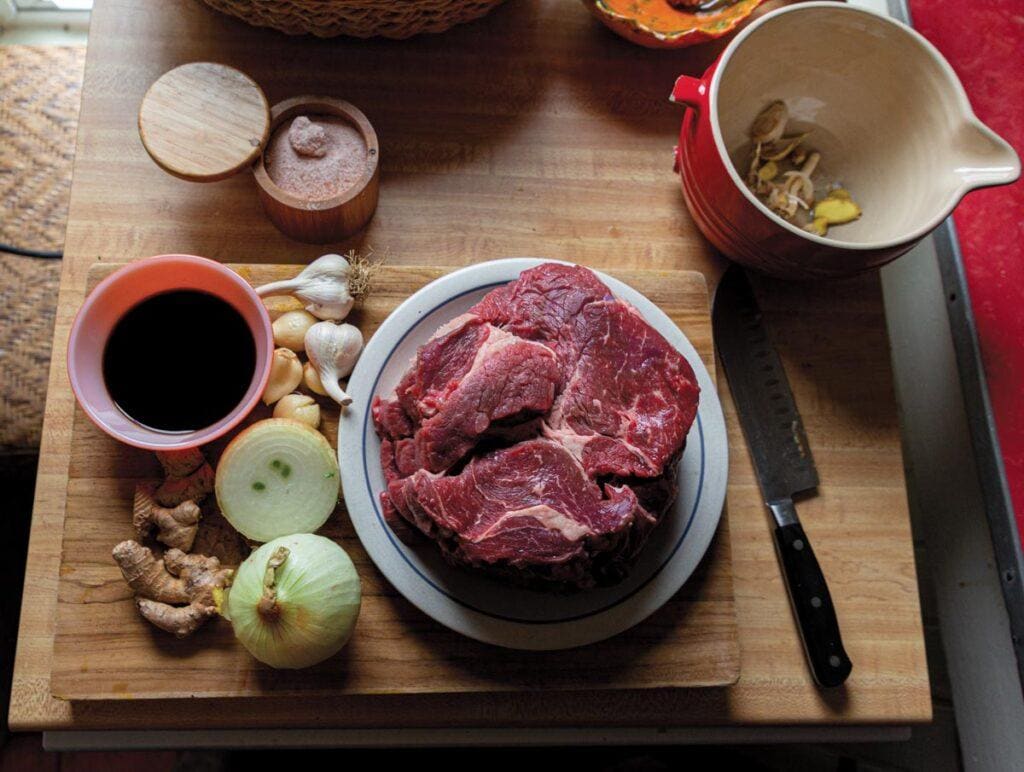
Years before launching HELD, her postpartum doula business, Webster and her husband were living and working on Milkweed Farm in Brunswick, where they welcomed their first son into the warm embrace of the farm community.
“We had this really unconventional postpartum experience because we were living intergenerationally with another family,” Webster says. “There were so many people around us to hold our baby, to cook meals for us, and to take care of us.”
Her tone turns rhapsodic as she remembers her own first meal as a new mother: a no-frills beef stew, with meat from a cow that they had pasture-raised on the farm. The beef was well salted, it had cooked for a very long time, and it had a glossy slick of fat on top. It felt like savory Gatorade for her weary body, and the power of that meal lodged itself deeply in her memory.
As she emerged from the blurry early months of new parenthood, Webster realized that her positive postpartum experience was unusual. Often, other parents she encountered were struggling and feeling lonely.
“The fibers of our community have gotten a lot less robust,” Webster says. Traditionally, it was the nearby grandmothers and mothers, uncles and aunts, neighbors and friends who would help care and cook for the new parents and their baby.
In the modern absence of this kind of village support, a new generation of professionals have appeared to fill the void, each with their own specialty. In 2018, moved by her experiences, bolstered by years of working in restaurants, and armed with a newfound knowledge of herbalism, Webster launched HELD: Postpartum Care Guided by Deeply Nourishing Whole Food.
Families often start working with Webster in the very early days after their babies are born, inviting her into their homes several times over the course of four to six weeks. For clients Sloane and Eric LePage, they were two weeks postpartum with their daughter Florence when Webster came to call. They had already provisioned for the dishes they’d chosen from her seasonal menus—tamari braised beef, cumin pork and black bean stew, shepherd’s pie—but the first thing Webster did on this visit was whip up an impromptu breakfast.
Shortly after walking in the front door, she was carrying a steaming plate of potato rösti upstairs to the hungry parents, popping a load of laundry in along the way.
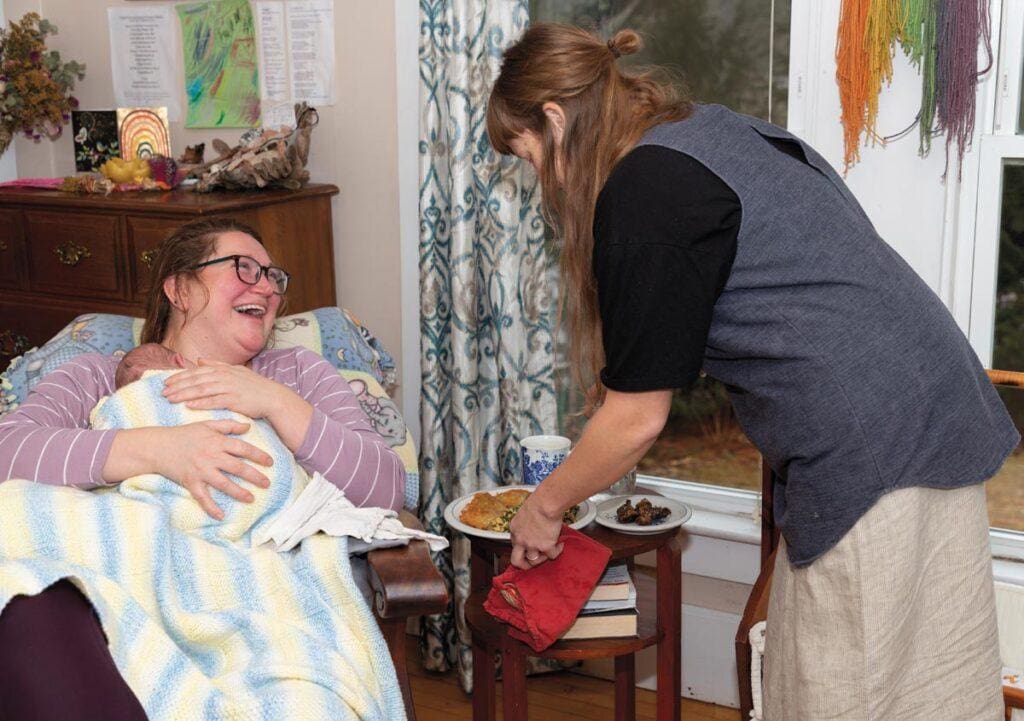
After chatting bedside with Sloane and Eric about their birth experience and current needs, Webster headed back down to the kitchen to start the braised beef, leaving the new family time to relax together while the smell of sizzling onions wafted up to them. Though nourishment and rest are two of the key recovery needs for new parents, the third element—of equal importance—is connection.
That’s why Webster doesn’t simply drop off ready-to-eat meals for her clients’ freezers. “There’s a deeper point of connection when you cook food in the home. It is foundational to the visit,” she says.
Though postpartum care is often baby-centered, Webster intentionally shifts the focus to the parents. She emphasizes that in this tender, vulnerable state, her clients have to give up control and receive care, which is not something we are accustomed to, but which is a key element to feeling supported. “So much of postpartum is mental health. That’s why connection is one of the most important things: that you feel like you are being seen; that you know there’s a safety net there for you.”
One of Webster’s early inspirations when she started her business was a cookbook, published in 2016, called The First Forty Days. The book focuses on the notion that historically and across cultures, the first 40 days postpartum is a time for new parents to rest, to be cared for by their community, and to be fed specific types of healing foods. Foods like bone broth that are warming and hydrating, that are loaded with gelatin (which helps heal connective tissue), that are rich with amino acids (which help build collagen), and that are full of electrolytes and minerals. Soft foods like slow-cooked red meats that provide digestible protein and have high levels of absorbable iron and vitamin B12. And good, high-fat foods like butter, lard, nuts, olive oil, and eggs to provide energy for the recovering parent.
Lily Nichols, a registered dietitian and nutritionist, writes in her book Real Food for Pregnancy that birthing parents require a high caloric and nutrient intake in the first six months postpartum. “You absolutely need to replenish your energy and take in additional nutrients to account for blood loss and wound healing,” she writes. “From rich bone broths to organ meats, from seafood to eggs, our ancestors understood that nutrients found in these foods were extremely important for healing and milk production in new moms.”
While Webster’s menus focus on these types of healing foods, she is careful not to be too dogmatic about what she cooks for her clients, recognizing that postpartum is a time to connect with what makes you feel good. “That is what’s going to go the furthest in serving you,” she says. “Everyone can find their own version of joy through food. Does that mean it’s the perfect Ayurvedic medicinal stew? No, it might just be a lasagna!” she laughs.
Using food as a touchpoint for creating connection and lending support can take many shapes, casserole or otherwise. Friends and family can simply drop off groceries for new parents, order takeout and have it delivered to their hospital room, cook them a hot meal, or gift a session with a professional postpartum doula like Webster—the act of caring nourishes as much as the food itself.







